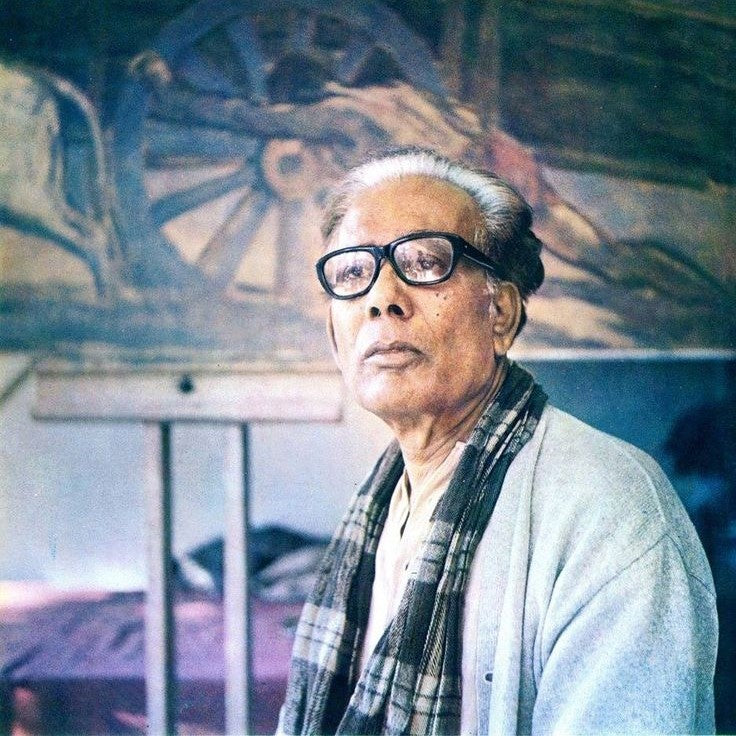Collection: Zainul Abedin
Zainul Abedin, reverently called the Shilpacharya or guru, is the architect of the modern art movement in Bangladesh, which began with the setting up of the Government Art Institute in Dhaka, in 1948. He was its founding principal and remained so until his retirement in 1967. A graduate of the Kolkata Art School, Abedin developed a social realist style, often focusing on the struggle and suffering as in his acclaimed ‘Famine Sketches’, which powerfully portrayed the Bengal Famine of 1943-1944. He had an abiding interest in marginalized communities, painting, for example, the indigenous Santhal communities, or refugees in the Palestinian camps of Syria and Jordan. Abedin was engaged as an activist in both the Language Movement of 1952 and the Bangladesh Liberation War of 1971.
Abedin sought to develop the country’s folk arts and crafts, and with this end in view, he set up the Sonargaon Folk Arts and Crafts Foundation in 1975. The same year, he founded the Zainul Sangrahashala in his hometown, Mymensingh.
Abedin was awarded an Honorary D Litt by the University of Delhi, India, and became National Professor in 1974, among many honors and awards. He received (posthumously) the Independence Day Award in 1977.
1948 – Government Institute of Art
1963 – East Pakistan/ Bangladesh College of Arts and Crafts; Government Art College
1983 – Institute of Fine Art, University of Dhaka
2008 – Faculty of Fine Art, University of Dhaka

